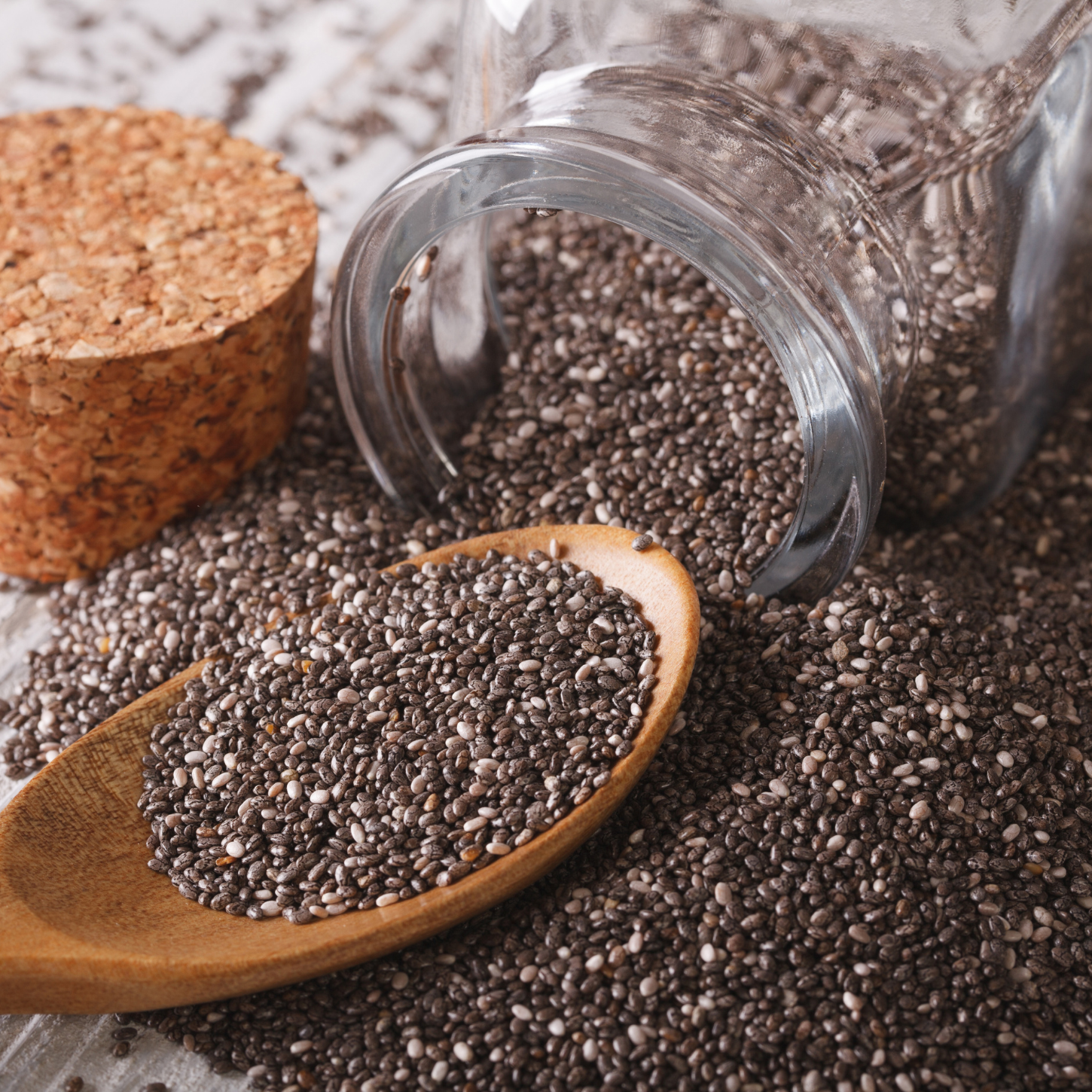Have you ever tried to shed some extra pounds?
You're definitely not alone!
Millions of people every year jump on the weight loss diet roller coaster, desperately seeking ways to ditch those pesky kilograms.
In fact, 52% of Americans between 18 and 34 years old tried a diet in the last year alone.
The demand for weight loss services and products is so humungous that the global weight market was valued at US$132.7 billion in 2021. In the US alone, it’s an incredible US$3.8 billion in 2023.
It seems like we have a big appetite for dropping those pounds.
Weight Watchers, Jenny Craig, the keto diet, Atkins, paleo, vegan, DASH, MIND, macrobiotic- there are as many diets out there as there are types of ice cream.
Most of these diets focus on calorie counting and what you do or don’t eat. However, a relatively recent weight loss trend that has gotten quite a bit of traction recently focuses on a different factor: when you eat.
This trend is called intermittent fasting, aka IF.
So, what exactly is intermittent fasting? Is it just a fad diet surrounded by a lot of hype and no scientific backbone, or is it backed by solid scientific evidence? Is weight loss the only health benefit it offers? And if it is good for you, how do you actually go about doing it?
In this article, we’re going to answer some of these questions and more so keep reading to find out whether it’s something you should incorporate into your lifestyle…or not.
Table of Contents:
- Is the Practice of Fasting New?
- What is Modern Intermittent Fasting Exactly?
- Types of Intermittent Fasts
- The Best Method of Fasting
- The Problems with Intermittent Fasting
- The Benefits of Intermittent Fasting
- Effect on the Gut
- Risks and Side Effects
- Tips for a Successful Fast
- Recipe Spotlight: Green Apple & Ginger Smoothie
Is the Practice of Fasting New?
Fasting has been a part of the human experience since time immemorial - except, back then, it was just known as 'going hungry'. Our ancestors weren't fasting for health reasons or even for an Instagram post.
Instead, they often faced long periods of time with limited food availability, and they had no choice but to ration their food.
For thousands of years, people have also voluntarily fasted. Whether it has been for physical or spiritual renewal, or even as a form of political protest, hunger strikes are not something new. In fact, individuals sometimes fasted anywhere from 24 hours to 40 days in efforts of penitence or protest.
It was in the 19th century that fasting became an accepted therapeutic practice as a means of treating ailments.
What is Modern Intermittent Fasting Exactly?
Intermittent fasting, aka time-restricted eating, is basically an eating routine that is split into two parts: a window of time dedicated for eating and a window of time for fasting.
We are all practiced fasters! When we hit the hay at night, we begin our fast, and when we get up in the morning after a night of sleep and eat our breakfast, we break our fast. You may also have had to fast before a blood test or medical procedure.
Intermittent fasting, as a practice, involves intentionally choosing windows of time to consume your food (longer than just the 7-8 hour slot that you’re in your bed) in order to gain some sort of health benefit, weight loss being a primary motivation. Unlike full-on fasts that don’t allow you to eat anything for long periods, in intermittent fasting regimes, you can still eat food, you just have to eat it during a certain window of time.
Types of Intermittent Fasts
There are many different ways to practice intermittent fasting. Here are a few common ones:
- 16:8 intermittent fasting. In this plan, all meals are eaten within an 8-hour window, followed by 16 hours of fasting. The exact times are up to you. Within the eating window, you can usually fit in at least two or three meals.
- Early time-restricted feeding (eTRF). This plan pushes mealtimes to the morning and early afternoon, followed by a fast that lasts the rest of the day and night.
- 5:2 diet. This plan involves eating regular meals for 5 days of the week and having two non-consecutive days of caloric restriction, which means eating less than 500 calories per day (equivalent to 1 small-sized meal).
- Alternate-day fasting. This option includes fasting for 24 hours straight, followed by 24 hours of eating as usual. This may be more suitable for people with prediabetes and is probably not recommended for people on glucose-lowering medications.
- 12/12 method. With this approach, you can enjoy all of your favorite barbecues and potlucks between 12 hours of the day (usually 7 am and 7 pm) before taking a break for the next 12 hours. This method is effective for curbing those late-night munchies, which are often people’s biggest weakness.
The Best Method of Fasting
The truth is, while most of the studies that have been done regarding IF involve the 16:8 method, there just hasn’t been enough research comparing the various fasting methods.
However, research does tell us that insulin sensitivity is highest in the morning and that people don’t sleep as well when their digestive system is busy working away. Therefore, it makes sense to skip dinner rather than breakfast, or at least make sure your dinner is done and dusted well and truly a few hours before sleep.
You also have to remember that everyone is an individual, and what may work best for one person may not work best for another.
If you feel like taking a shot at intermittent fasting, why not explore different approaches? Don't be afraid to find out what works best for your lifestyle and experiment.
And if you're new to fasting but don't want to take a total plunge into the deep end, the 12/12 method is like an inflatable pool floatie - it'll get your feet wet without totally drowning.
The Problems with Intermittent Fasting
We've all seen crazy diet and exercise trends come into fashion, often looking more like a marketing ploy, even though they may have their origins in legitimate science. These fads are often like playing a game of Chinese whispers - real science gets lost in translation, with the facts becoming utterly distorted by each retelling.
Intermittent fasting is one such example. It has quickly moved into fad territory and become the flavour of the month, and, with that comes a bunch of problems. Doctors and nutrition experts may be quick to write it off altogether and, like throwing the baby out with the bath water, cause many people across the world to miss out on all its legitimate benefits.
Another problem is on the other end of the spectrum, where proponents of IF encourage extreme behaviour. For example, they say it’s okay to binge on lots of high-calorie, high-fat foods such as hamburgers, processed meat, and baked goods during eating windows as long as you fast properly in your non-eating windows.
The Benefits of Intermittent Fasting
However, while the hype around fasting has created a bunch of problems, the science shows it is definitely not all baloney.
In fact, fasting is actually associated with numerous health benefits. It just needs to be done right.
1. Supports sustainable weight loss
To understand the reasons why fasting is beneficial for weight loss, let's look at what actually goes on in the body when we eat and when we fast.
When we eat, we ingest more energy than we can immediately use. As a result, under the effect of the hormone insulin, the body converts excess energy into body fat and stores it away for later. This newly created fat is deposited in the liver or in fat deposits in the body, such as the adipose tissue.
On the contrary, when we fast, we must rely on stored energy. Insulin levels go down, and the body starts to break down stored body fat for energy.
As you can see, there are two modes in the body: the fed state (high insulin) and the fasted state (low insulin).
When we eat, we use food for energy. When we fast, we use stored fat for energy. This is why fasting can help you lose weight and reduce inflammation.
According to a 2019 review, the large majority of studies that have been done so far have found that IF is beneficial to some degree for weight loss, ranging from 2.5-9.9%. Not only does the research suggest that it can balance fat-burning hormones, but also limiting caloric intake due to skipping meals might be responsible for the loss of those dreaded pounds!

2. May delay aging and prolong your life
Fasting also induces cellular cleansing, a process called autophagy. Autophagy is a regulated process of breaking down and recycling cellular components when there’s not enough energy to sustain them. Once all the old or damaged cellular parts have been cleansed, the body begins renewal. New tissues and cells are built to replace those that were destroyed.
Studies have shown that enhanced autophagy can reduce inflammation, delay aging, and prolong life.
3. Improves insulin resistance
Fasting also improves insulin resistance.
A study from 2014 revealed that intermittent fasting is like a turbo-charged fitness regimen for your blood sugar levels, reducing them by up to 6% and whittling away insulin levels by 20-31%.
Another study in 2017, which focused on patients with type 2 diabetes, found that intermittent fasting led to improvements in body weight, fasting glucose, and postprandial variability.
4. Improves brain health
Studies have shown intermittent fasting can also reduce brain inflammation and delay the onset and progression of neurodegenerative diseases such as Alzheimer’s disease and Parkinson’s disease.
By enhancing brain-derived neurotrophic factor (BDNF), which is known to be important for cognition, increasing autophagy, and enhancing DNA repair, intermittent fasting is showing to be a promising strategy for brain health and neurodegenerative diseases.
The benefits of fasting do not stop there! Studies also show that fasting:
- Improves energy levels
- Lowers blood pressure
- Reduces inflammation
- Improves glucose control in people with type 2 diabetes
- Improves total cholesterol, LDL cholesterol, and triglyceride levels
- Protects from neuronal damage caused by oxidative stress
- May improve your circadian rhythm
Effect on the Gut
Research into how IF has an effect on your gut health is pretty new, but there is evidence that indicates that it could help change the composition of the bugs in your gut.
In one study, the overall microbiome diversity of a group of young men following the 16:8 method significantly increased. They also saw increased levels of specific beneficial bacteria called Prevotellaceae and Bacteroidetes, which have positive impacts on the risk for obesity and other metabolic issues.
Also, during these periods of abstinence from food intake, your gut gets a much-deserved break allowing cells to be repaired in order to strengthen its barrier against yucky toxins and scary pathogens.
Not only that, IF reduces inflammation and may also increase magical microbial compounds called short-chain fatty acids (SCFAs), which are important for a diverse microbiome and overall gut health.
Risks and side effects
While IF does offer benefits, it’s good to be aware that it can also come with a few not-so-fun surprises. According to 2017 research - low energy levels and feelings of extreme hunger could be only part of what you'd have to look forward if you decide on going down this road. You may also experience mood swings, tension headaches, even depression & confusion!
Girls, you may also miss out on your monthly ramen party. It seems that those with lower body weights are more susceptible to these side effects early on in the fasting game.
It’s also extremely important to note that not everyone is a suitable candidate for fasting. Some pre-existing medical conditions rule out fasting, such as:
- Cachexia (weakness and wasting of the body due to severe chronic illness)
- Patients with a history of eating disorders, such as bulimia or anorexia nervosa
- Uncontrolled hyperthyroidism
- Advanced dementia
- Advanced liver or kidney insufficiency
- Pregnancy and nursing
Tips for a Successful Fast
If you’ve never done a fast before, here are some tips to help make the whole process easier and more effective.
- During the fasting period, it's recommended to drink plenty of water, herbal teas, or vegetable broths.
- During the eating periods, the diet should be nutrient-dense, with a variety of whole plant foods.
- Additionally, if fasting for longer periods, it is recommended to minimize intense physical activity and get plenty of rest.
- For successful fasting, a mindful and stepwise reintroduction of solid food intake is of importance and a cornerstone to successfully adopting a more healthy lifestyle following fasting.
- Space the meals out in your eating period. It is recommended at least 3 hours between meals. This enables your migrating motor complex (MMC) to function properly in order to push food along your digestive tract. Try not to snack in between as any food detected in your digestive tract will stop the MMC.
- Following an overnight fasting period, it’s recommended to break the fast with five important nutrients: greens, fiber, probiotics, good fats, and protein. A meal that comprises all of these is a green smoothie with leafy greens, plant-based yogurt, and nuts and seeds such as walnuts and hemp seeds. You can also add plant-based protein powder as well, although this is not essential
Now while all of this is well and good, it is important to consult with a physician before trying intermittent fasting or other types of fasting. This is especially important for patients with chronic medical conditions to determine if adjustment in medications or lab testing may be needed.
Recipe Spotlight: Green Apple & Ginger Smoothie
Plus, smoothies are quick and easy to prepare, making them a great choice when you’re short on time.


















What Do You Think? Comment Below: